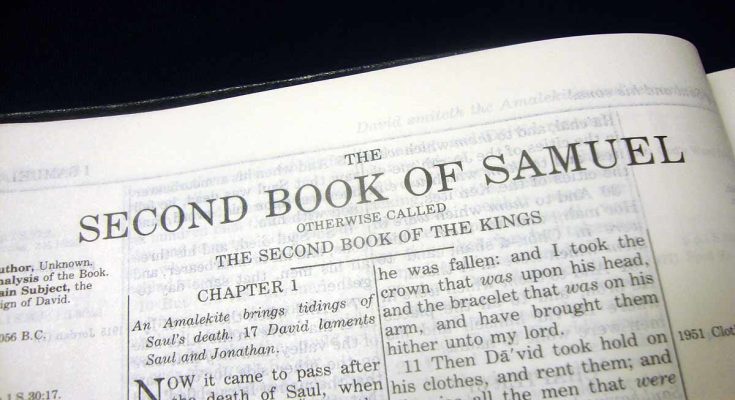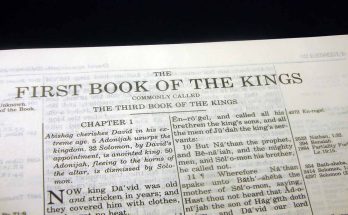The Book of Second Samuel
In Second Samuel David took the fractured kingdom that Saul had left behind and built a strong, united power. Forty years later, David would turn this kingdom over to his son Solomon. David had a heart for God. He was a king who governed God’s people by God’s principles, and God blessed him greatly. We may not have David’s earthly success, but following God is, ultimately, the most successful decision we can make.
David sinned with Bathsheba and then tried to cover his sin by having her husband killed. Although he was forgiven for his sin, the consequences remained – he experienced trouble and distress, both with his family and with the nation. God is always ready to forgive, but we must live with the consequences of our actions. Covering up our sin will only multiply sin’s painful consequences.
Writer of Second Samuel
Unknown, some have suggested that Nathan’s son Zabud may have been the writer (1 Kings 4:5). The book also includes the writings of Nathan and Gad (1 Chronicles 29:29).
Possibly Samuel, but also includes writings from prophets Nathan and Gad (1 Chronicles 29:29). Since the name of the great prophet Samuel is associated with these books, it is logical to assume that he wrote both First Samuel and Second Samuel. The Book of First Chronicles refers to “the book of Samuel the seer” (1 Chronicles 29:29). However, all of Second Samuel and a major portion of First Samuel deal with events that happened after Samuel’s death. Many scholars believe that Abiathar the priest, who may have had access to royal records, wrote those parts of these two books that deal with the court life of David.
Purpose of Second Samuel
To record the history of David’s reign; to demonstrate effective leadership under God; to reveal that one person can make a difference; to show the personal qualities that please God.
Historical Setting of Second Samuel
The books of First Samuel and Second Samuel describe a turning point in Israel’s history when the people insisted on a united kingdom under the ruling authority if a king. Saul was anointed by Samuel about 1050 B.B. and rule for 40 years; David also ruled 40 years from 1010 to 971 B.C.
Theological Contribution
The major contribution of First Samuel and Second Samuel is the negative and positive views of the kingship which they present. In calling for a king the people were rejecting God’s rule, but the throne that God established with David would be established forever on the person of Jesus Christ the Messiah.
Scripture Study Resources
ESV Study Bible – Study Bibles give you a deeper understanding of God’s Word with tools for life application like commentary, maps, charts, concordance, and study notes. Search our popular translations- NIV, ESV, NKJV, KJV and more!
Believer’s Bible Commentary: Second Edition – A Bible commentary is a written, systematic series of explanations and interpretations of Scripture. Commentaries often analyze or expound on individual books of the Bible, chapter by chapter and verse by verse. Some commentary works provide analysis of the whole of Scripture.
The New Strong’s Expanded Exhaustive Concordance of the Bible – The best concordance for word study! This exclusive new edition of a legendary classic puts generations of biblical research at your fingertips. A valuable tool for pastors, teachers, and students of the Bible.
Vine’s Complete Expository Dictionary of Old and New Testament Words – This classic word study resource allows you to study the meaning of biblical words in the original languages without spending years learning Greek or Hebrew. A great resource for students, seasoned pastors, and anyone who enjoys biblical word studies–even if they have little to no formal training in Hebrew or Greek.
Halley’s Bible Handbook – The beloved and classic Bible companion has been thoroughly updated, while retaining its time-honored features and Dr. Halley’s highly personal style, to offer even greater clarity, insight, and usefulness.
Click here to print or download the scripture outline “Second Samuel: Living for God“




